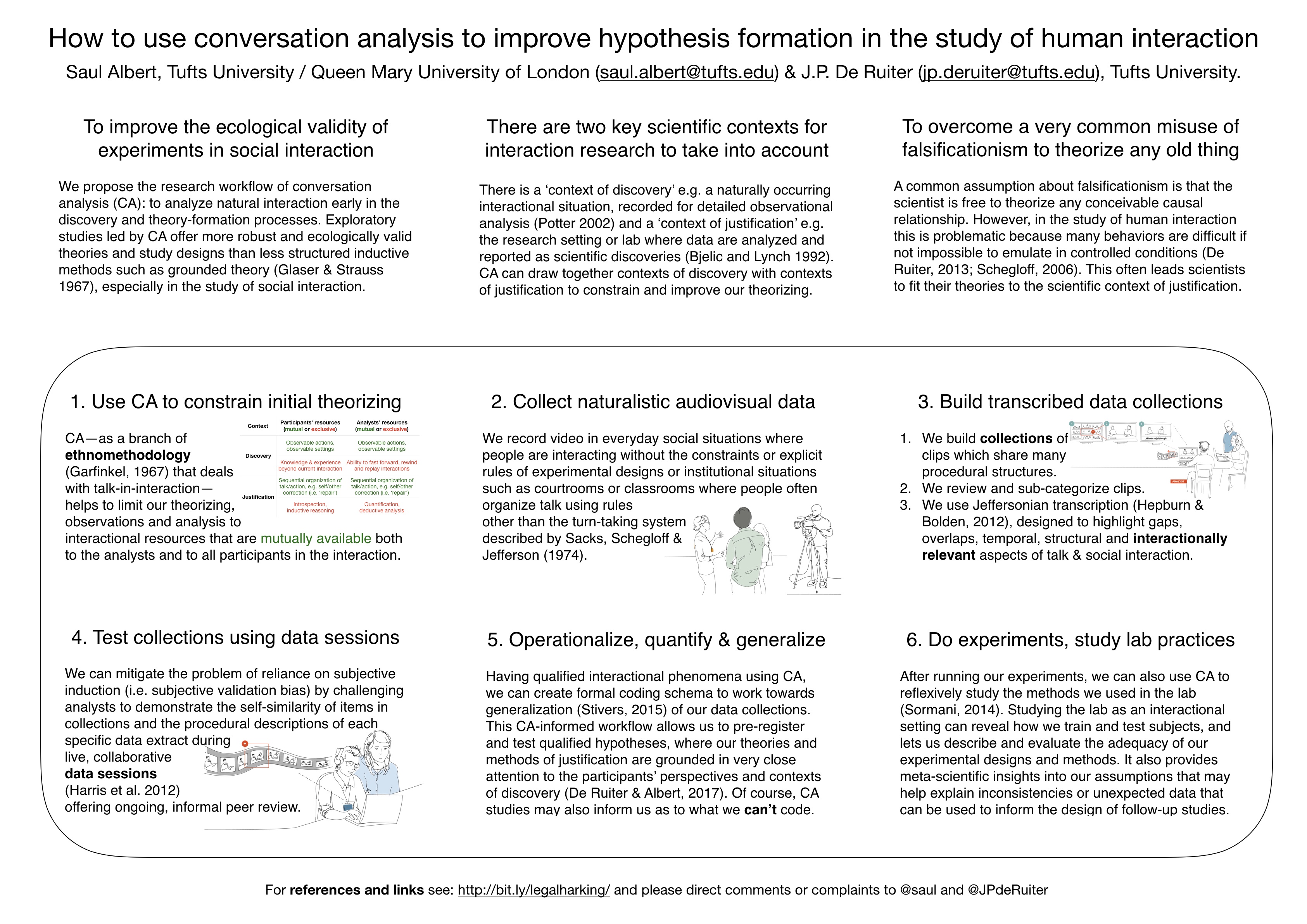Our 2017 CogSci paper argues that conversation analysis (CA), when used at the right point in the experimental research cycle, can provide all the benefits of HARKing with none of the harms.
Since CA studies recordings of past interactions, using conversation analysis (CA) to formulate hypotheses for experimental study can be compared to the questionable research practice of hypothesizing after the results are known (HARK)ing – but not necessarily in a bad way. We explored this productive intersection between CA and experimental psychology to find some cross-disciplinary opportunities. We also made a poster:
References
Bjelic, D., and Lynch, M. (1992). The Work of a (Scientific) Demonstration: Respecifying Newton’s and Goethe’s Theories of Prismatic Color. In Watson, G. and Seiler, R.Text in Context: Contributions to Ethnomethodology, 52–78. Sage Publications Newbury Park, CA.
De Ruiter, J. P. (2013). Methodological paradigms in interaction research. In Alignment in Communication: Towards a New Theory of Communication, in Wachsmuth, I, De Ruiter, J. P. Jaecks, P, and Kopp, S (Eds.), John Benjamins Publishing Company.
De Ruiter, J. P., and Albert, S. (2017). An Appeal for a Methodological Fusion of Conversation Analysis and Experimental Psychology. Research on Language and Social Interaction, 50(1), 90-107.
Garfinkel, Harold. 1967. Studies in ethnomethodology. Englewood Cliffs, New Jersey: Prentice-Halll.
Glaser, G., and Strauss, A. (1967). The Discovery of Grounded Theory: Strategies for Qualitative Research. New York, NY: Aldine de Gruyter.
Hepburn, A, and Bolden, B. (2012). The Conversation Analytic Approach to Transcription. In Sidnell, J and Stivers, T (Eds.) The Handbook of Conversation Analysis,, 57–76. Oxford: John Wiley & Sons.
Harris, J., Theobald, M., Danby, S., Reynolds, E., and Rintel, S. (2012). What’s going on here? The pedagogy of a data analysis session. In Lee, A., and Danby, S. (Eds.) Reshaping Doctoral Education: International Approaches and Pedagogies, 83–96. London: Routledge.
Potter, J. (2002). Two Kinds of Natural. Discourse Studies 4(4), 539–42.
Sacks, H., Schegloff, E., and Jefferson, G. (1974). A simplest systematics for the organization of turn-taking for conversation. Language 50(4), 696–735.
Sormani, P. (2014). Respecifying lab ethnography: an ethnomethodological study of experimental physics. Farnham: Ashgate Publishing, Ltd.
Stivers, T. (2015). Coding Social Interaction: A Heretical Approach in Conversation Analysis? Research on Language and Social Interaction 48 (1). 1–19.
